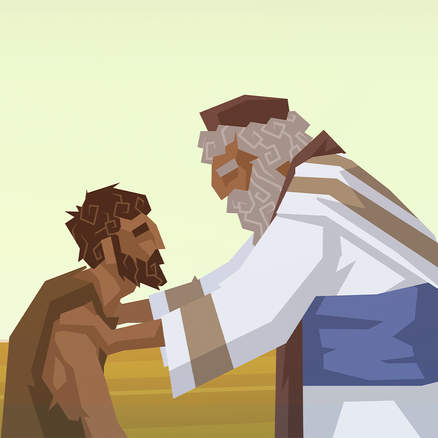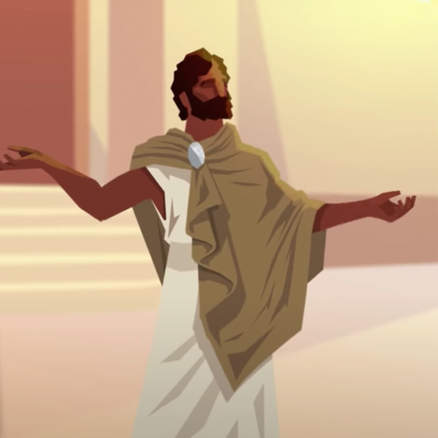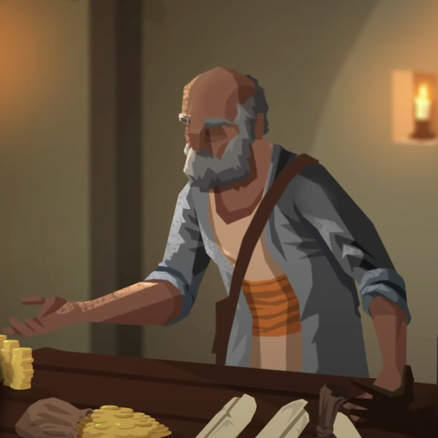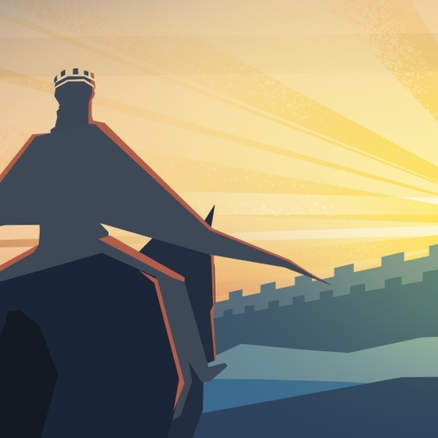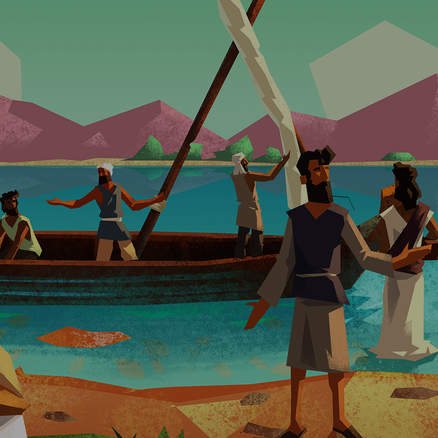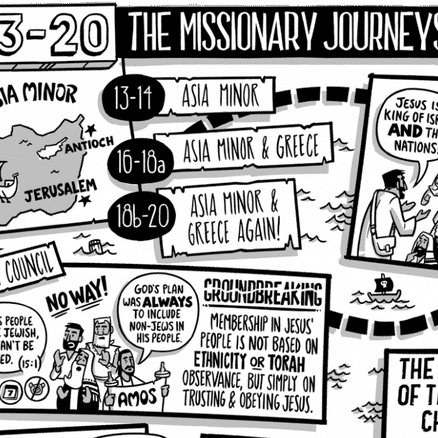
The Baptism of Jesus: Luke 3-9
Jesus launches his ministry and announces that God's Kingdom is good news for the poor, reversing the expectations for Israel's promised Messiah.
Script
Jesus Continues Israel’s Story [00:00-01:55]
Jon: The Gospel according to Luke began by telling us about the births of John the Baptist and Jesus of Nazareth.
Tim: And in the next section of the Gospel, Luke zooms forward in time. So John is now a prophet, and he’s leading a renewal movement down at the Jordan River. And all of these Israelites are coming to be baptized—the poor, the rich, tax collectors, even soldiers.
Jon: Yeah. What’s going on here?
Tim: So all of these people are dedicating themselves to a new way of life.
Jon: By getting dunked in a river?
Tim: So long ago, Israel came to inherit this land by crossing through the Jordan River. And God gave them a responsibility. They were called to serve him alone and to love their neighbor and pursue justice together.1
Jon: And we know from the stories in the Old Testament that they failed at this repeatedly.
Tim: Right, so John is calling Israel to start over, to go back through the river and come out rededicated to their God, ready for the new thing that God’s about to do. And so it’s within this renewal movement that Jesus first appeared.
Jon: Jesus is baptized by John, and the sky opens up and a voice from Heaven says, “You are my Son, whom I love; with you I am well pleased.”2
Tim: Now, God’s words here are packed with echoes from the Hebrew Scriptures. This first line is from Psalm 2, where God promised that a king would come, who would rule in Jerusalem and confront evil among the nations.
And then this next line is from the book of the prophet Isaiah, and it refers to the Messiah who would become a servant and suffer and die on Israel’s behalf.3
Jon: After this, Jesus goes into the wilderness for 40 days with no food. I mean, that’s roughing it.4
Tim: And in this story, Jesus is replaying Israel’s 40-year journey through the wilderness, where they failed to trust their God and so they rebelled. But Jesus succeeded by resisting temptation and trusting God. And so this story is marking Jesus as the one who’s going to carry Israel’s story forward.
A Kingdom for the Poor [01:56-05:07]
Jon: After the wilderness, Jesus comes back to the region of Galilee to his hometown of Nazareth. He’s in the synagogue, and he’s invited to read from the Scriptures.
Tim: And he opens up the scroll of Isaiah and he reads:
The Spirit of the Lord is upon me
because he has anointed me
to proclaim good news to the poor.5
Jon: Why to the poor?
Tim: Well, in Hebrew culture, being poor wasn’t just about money. It was more about low social status, so women and children, and the sick, people on the margins. And surprisingly, this could include people who had money, like tax collectors. They were considered outsiders too, and so Jesus is here for them.
Jon: Then Jesus continues reading.
Tim: The Lord has sent me to proclaim freedom for the prisoners to set the oppressed free, to proclaim the year of the Lord’s favor.6
Jon: Freedom seems like a big deal for Jesus.
Tim: Yes. Jesus was freeing people from their sicknesses, from their past, from their shame. And he was freeing them to become a part of God’s new Kingdom that Jesus said he was bringing into reality.
Jon: After this, Jesus appoints twelve men from among all his disciples as leaders to help him in his mission.
Tim: And that number, twelve, is a very intentional symbol of the twelve tribes of Israel.7
Jon: But this is a ragtag bunch of guys. You’ve got a fisherman. You’ve got a former tax collector who worked for the Roman occupation. You have a former rebel who fought against the Roman occupation. There’s no way these guys are going to get along.
Tim: Yeah. Jesus intentionally brought together people who were outsiders and sworn enemies. But inside God’s Kingdom, they’re called to reconcile and to live in unity. Following Jesus meant entering a new world order. And so Jesus went on to teach:
Blessed are you who are poor, for yours is the Kingdom of God.8
Blessed are you who weep now, for you shall laugh.9
Blessed are you when people hate you because of me.10
Jon: Jesus even told his disciples to love their enemies, be strangely generous, even to people they don’t like, to forgive and show mercy. This is a radical way of life.11
Tim: And Jesus not only taught about all this, he promised that he would lead the way, that he would be radically generous and forgive and love his enemies by making the ultimate sacrifice, by giving up his life.12
Jon: The last story in this section of Luke is fascinating. Jesus takes some of his disciples up onto a mountain and God’s glory appears as a bright cloud. And Jesus is suddenly transformed, and there’s two other prophets that appear, Moses and Elijah.13
Tim: Yeah. They’re the ancient prophets who also experienced God’s glory on a mountain.14 And then God speaks from the clouds saying, “This is my Son, listen to him.”15 Luke is showing us that Jesus is the ultimate prophet. He is God’s word to Israel.
Jon: The three of them talk about what Jesus is going to do when he arrives in Jerusalem. What’s he going to do?
Tim: He’s going to the capital city to be enthroned as Israel’s true king, but not in the way that anybody expected.
Jon: And with that, Jesus’ mission up in Galilee comes to an end, and the next part of Luke’s Gospel begins with his long journey to Jerusalem.
Related Content


